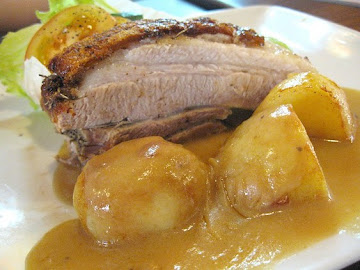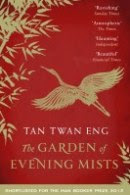my name is boey, and a friend referred me to your blog, where i ninjaed this address.
i'm best known for my works on foam cups since they went viral 4 years ago, and ive amassed quite a following on my blog that i update 6 times a week, and i am actively promoting the book now, especially so in asia, because it is rather disheartening that my artwork is better known in other parts of the world, but hardly at all back home.
I ignored all the typos in the e-mail for some reason and looked at the attachments. It was good, like a rough version of Lat's Kampung Boy, but I had a feeling we wouldn't be able to publish it for him.
I replied, and then forwarded the e-mail to the distributors' office upstairs. He had to self-publish in the end, but at least they would help him bring his book into the local market - if they agreed to.
I don't think anybody saw what came next.
A year later, the book has gone for five reprints - with 10,000 copies sold or in circulation; made the best-seller lists of major bookstores; and landed the author spots on TV, radio and the papers, in print and online.
All of that happened because a) he made a good product and believed in it and b) kept knocking on doors. We just so happened to be around and ready to give him a break.
Perhaps it was for the best that he self-published it. Otherwise I would've been the one doing his author's note and wouldn't have let him call himself "handsome", even if many readers think so.
I'd like to think that this was a modest success story. As with all success stories, it's the protagonist who sets things in motion with the first step.
When he was a kid...
first published in The Malaysian Insider, 13 May 2013
Childhood stories. Most people wrote theirs; fewer have drawn theirs. But one thousand words is not easy to write, and a picture does not have to be too detailed to tell a good story.
Boey Cheeming's collection of hand-drawn childhood stories, When I Was A Kid, is an example of how simple lines and words are all you need to tell a tale.
Years back, I came across what looks like the blog of a young lady's (mis)adventures in life and love, comprising mostly of simple single-frame comics.
The artwork in Boey's collection is not much different. His avatar is easier to draw, however, and though his collection has more text, his roughly drawn figures fill in when words fail.
One should note that he's not afraid to speak or draw his mind. Nor is he inclined towards political correctness. Despite being advised to choke back the F-word numerous times during his book tours in Southeast Asia, one or two managed to slip past - without incident, I should add.
And some wouldn't like what he had in mind for his mom in her old age, though I personally saw one fan guffaw at it. His mom has read the book and is fine with it.
I guess there's a certain appeal in his honesty and irreverence, much of it all too apparent in his blog, where his own (mis)adventures continue online.
Even the non-graphic blog entries, all handwritten and scanned, are just as expressive. The handwriting, crossouts and assorted scribbles hints at a tendency to wear one's heart on a sleeve - or one's brain on a T-shirt.
Kampung Boey abroad
Malaysian by nationality, Boey went to school in Singapore before flying off to the States to do advertising at the Academy of Art University (AAU) in San Francisco.
He moved to computer animation, and eventually landed a job at Blizzard Entertainment(!) where he was an animator on projects such as Diablo II (!!) and Diablo III (!!!)
Before he found fame with his graphical autobiography, one of our country's crouching tiger/hidden dragon was known for gorgeous, intricate pieces painstakingly inked on styrofoam coffee cups with markers, from the first stroke to the last ("Wayward Boey comes home - for a short while", 02 August 2012).
He has since quit his job, and gone on a book tour, giving talks, meeting fans and signing copies of his book. He currently resides in Oakland, California and is working on his next book.
Poignant and punchy penstrokes
Though these are Boey's recollections, he promises that they will have you reminiscing about your childhood. Do you want to, though? It can be a tough question, and not just for those with difficult childhoods.
For most of us, when we were kids, childhood is a mixed bag, like Forrest Gump's "box o' choc'lutz" that should be partaken slowly and in small bites. Who knows what emotions a particular scene would evoke?
The sight of a well-drawn old-school Chinese-run sundry shop, for instance, returns the smell of dried goods, old rice and stale air to your nostrils. Then your eyes threaten to spill when you think of the days you badgered your parents for snacks or trinkets your adult self now recognises as unhealthy or frivolous indulgences - and feels awful for.
Other scenes from the author/artist's childhood seem familiar as well. Forced to do unsavoury chores? Yes, though burying dead birds is a breeze compared to whacking a trapped rat to death, which is harder than it sounds.
Fought with your younger sibling and got thrashed for it afterwards? Been there, done that. Felt your other talents were underappreciated because of your mediocre academic performance? So did I.
And hey, my grandma smoked too.
But it's not all about his parents or other people. Boey pokes fun at himself as well. In one chapter, he mimes kung-fu moves and gets teased by his mom. Another chapter sees his chubby tween self climb out of a pool with all the grace of a manatee. Getting chased and pecked by angry geese can be a harrowing experience for a kid, but he manages to make us laugh at that.
A friend who probably grew up a thousand miles away from any large body of water gawped incredulously when Boey told her that he used to believe that there were sharks in a swimming pool.
"I was a KID," Boey said defensively.
Weren't we all?
Boey calls his book a time-travel device and, in a way, it is. Combined with hindsight, a wry eye and the impious touch of his pen, he revisits his "mundane" growing-up years and manages to make it more interesting.
It's nice to think that, as he takes his trips back through time, the book becomes a prism through which he examines himself to see how much has changed since he was a kid and whether there's still room for improvement.
If it could do the same for those who read it, all the better.
When I Was A Kid is available at RM34.90 a copy and is available at all major bookstores. When I Was A Kid 2 is being Kickstarted.
When I Was A Kid
written and published by Cheeming Boey (2010)183 pages
Non-fiction
ISBN: 978-0-9849786-0-1
Categories:
Book Reviews,
The Malaysian Insider























